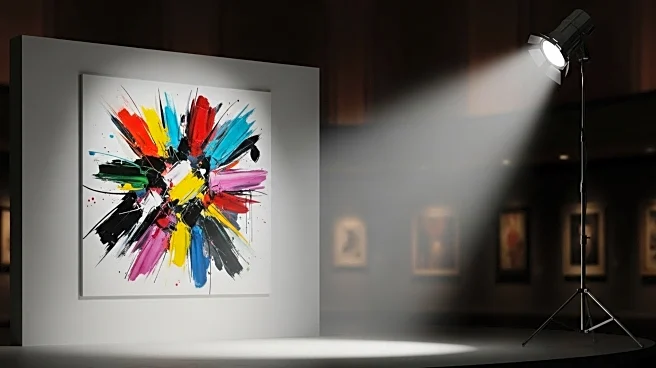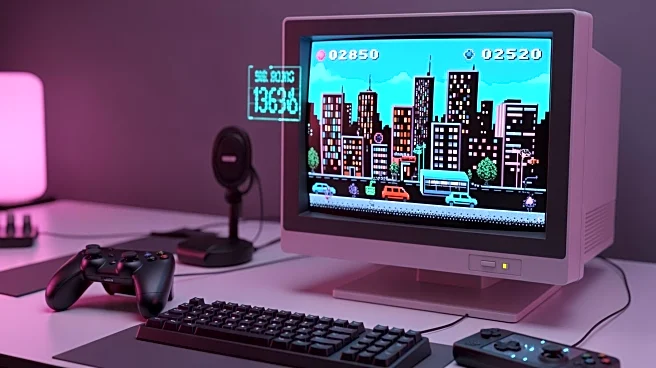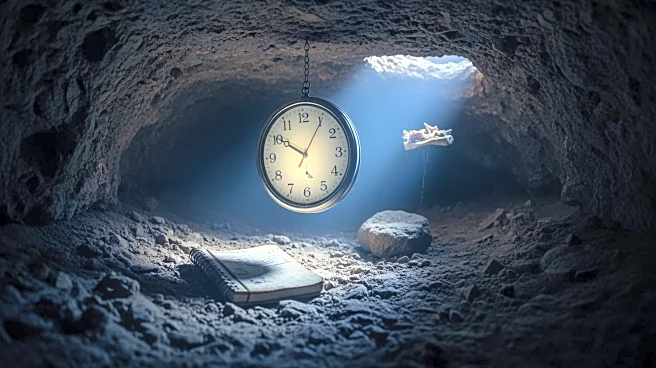What is the story about?
What's Happening?
The theatrical production 'ROHTKO' delves into the infamous art world fraud involving fake Mark Rothko paintings sold by Knoedler & Co. from 1994 to 2011. The performance, directed by Łukasz Twarkowski, examines the concept of authenticity and the evolving idea of value in the digital art era, including the rise of NFTs. The production features onstage performances, video screens, and a techno soundtrack to interrogate the blurred lines of authenticity in art. The narrative spans from the 1960s, during Rothko's final years, to the digital age, highlighting the complexities of art valuation.
Why It's Important?
The production 'ROHTKO' is significant as it challenges the traditional notions of authenticity and value in the art world. By exploring the Knoedler scandal, it raises questions about the impact of forgeries on emotional responses and the legitimacy of art. The rise of digital art and NFTs further complicates these issues, prompting a reevaluation of what constitutes genuine art. This exploration is crucial for understanding the evolving dynamics of art valuation and the cultural implications of art fraud.
What's Next?
The production is set to run at London's Barbican Centre as part of the U.K./Poland Season 2025. It aims to provoke thought and discussion among audiences about the nature of authenticity in art. The performance may influence future art exhibitions and the way art is perceived in the digital age, potentially leading to more scrutiny and debate over the authenticity of artworks.
Beyond the Headlines
The production 'ROHTKO' not only addresses art fraud but also touches on broader themes of identity and cultural heritage. It highlights the role of art in shaping perceptions and emotions, questioning whether the emotional impact of art is diminished by its authenticity. This exploration may lead to a deeper understanding of the cultural significance of art and its role in society.















